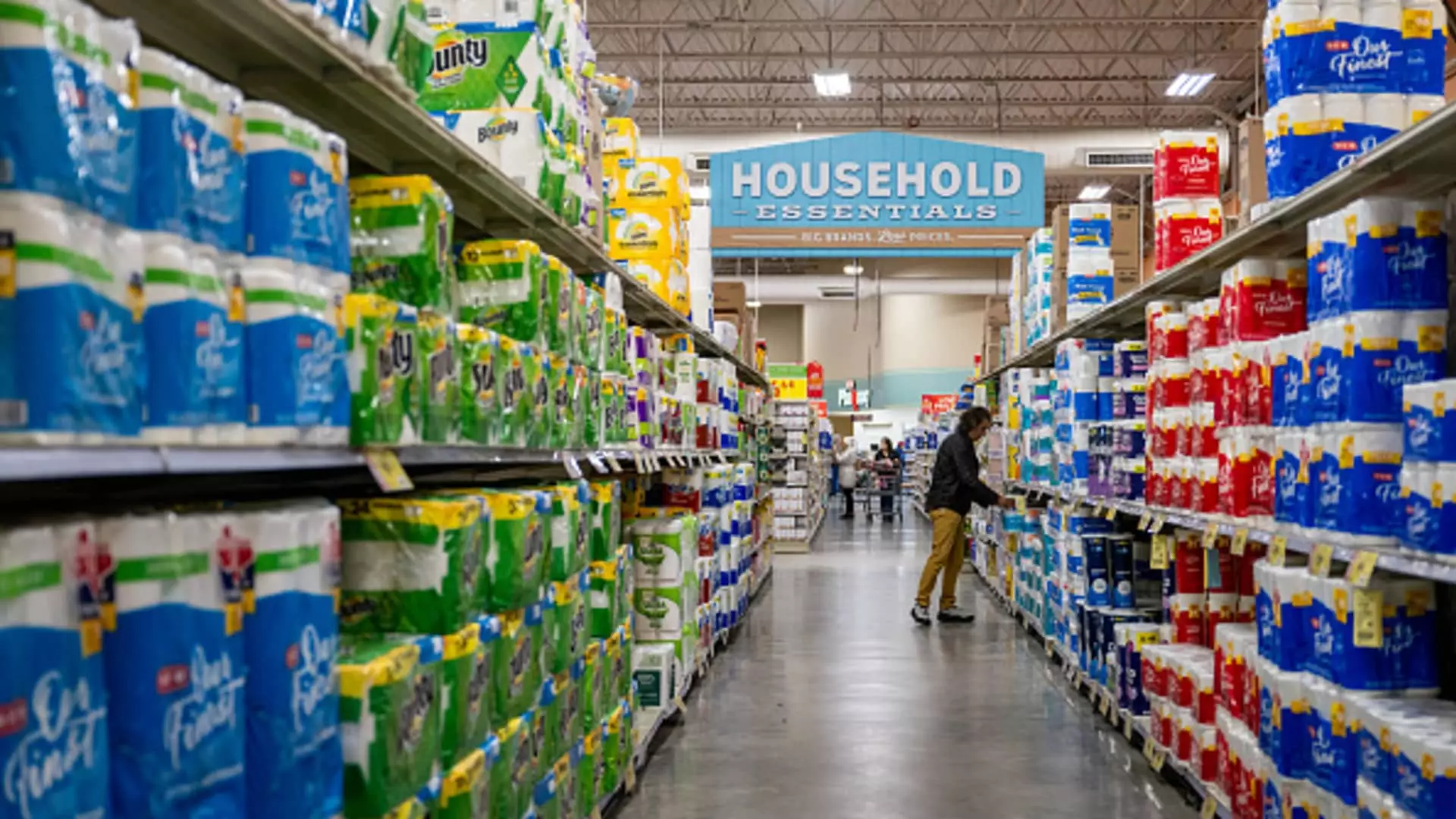As the U.S. gears up to implement new tariffs on imports from over 180 countries, Americans are soon to face a reality that the Trump administration may have overlooked. Grocery items like coffee, bananas, vanilla, and even everyday household necessities such as toilet paper are expected to come with increased price tags, further burdening consumers already juggling economic uncertainties. While the administration insists that these tariffs are a necessary part of its “America First” agenda, they may not be considering the long-term consequences for American families—especially concerning essential commodities that largely depend on imports.
Compounding an Existing Crisis
It’s essential to recognize that the recent tariff policy could exacerbate existing inequality and inflation issues. For many families, the cost of living has already become unbearable, making the prospect of paying more for their usual purchases deeply unsettling. The new tariffs, which are intended to entice companies to manufacture domestically, fail to consider that certain key ingredients simply cannot be produced in the U.S. due to geographical and environmental limits.
Take coffee, cocoa, and tropical fruits—these are not only staples of American diets but also crucial for the food supply chain. The Consumer Brands Association (CBA) has pointed out that nearly 40% of U.S. bananas come from Guatemala, which will soon face a 10% tariff. Shoppers may soon find that the hunger for morning coffee or an afternoon smoothie comes with a hefty price increase.
Household Necessities Under Siege
It’s not just foodstuffs that threaten to break the bank; household goods are equally at risk. Toilet paper, diapers, and other vital everyday products could see a noticeable price hike as manufacturers begin to pass along the increased costs attributed to raw materials like wood pulp and palm oil. U.S. imports of palm oil, primarily from Indonesia, are set to incur a 32% duty. This sudden spike can have devastating effects on brand pricing and consumer affordability, turning once-accessible products into costly luxuries.
While major corporations like Procter & Gamble and Coca-Cola may present as fortified against these changes—reporting modest stock increases as investors look to more stable sectors—the average consumer will likely feel the consequences first. The true ramifications of these tariffs will not be reflected in market skims but rather in grocery store registers and household budgets.
Dependence on External Markets
Beyond consumer impact, there lies a more significant issue regarding the U.S. agricultural system. Decades of changes have led to a heavy reliance on imports for many staple crops. The CBA notes that over 90% of oats processed for food in the U.S. come from our northern neighbor, Canada. With dwindling domestic oat production that peaked over a century ago, tariffs could cripple an already vulnerable market.
This is an unintended consequence of a tariff policy born out of nostalgia for a bygone era of American manufacturing superiority. It’s absurd to think that American farmers can magically remedy the reliance on foreign sourcing overnight. The complexities of agriculture and commerce require more nuanced strategies than a simplistic tariff approach.
How Tariffs Enact Social Injustice
What is disturbing about this entire tariff saga is its disproportionate impact on lower-income families and individuals who are already struggling to make ends meet. The increase in prices for essential goods will undoubtedly hit hardest those who can least afford it, further widening economic inequalities. The policy’s short-sightedness exemplifies a failure to grasp the ongoing struggles faced by many Americans.
In a world where income disparity is increasingly scrutinized, such economic policies appear oblivious or indifferent. It is perplexing how administration officials can brush off concerns regarding emergency exemptions for crucial goods while placing the financial burden on everyday citizens.
The voices calling for reconsideration of this tariff strategy represent a growing sentiment that simply cannot be ignored. An administration’s responsibility lies not only with industry giants but, crucially, with the people whose lives are directly impacted by the decisions made in the halls of power.
In sum, while the notion of national economic rejuvenation through tariffs may sound appealing on paper, the socio-economic repercussions could lead to a more expensive, inequitable reality for consumers. The notion of ‘America First’ should not come at the expense of American families—yet that is precisely the path we currently tread.

